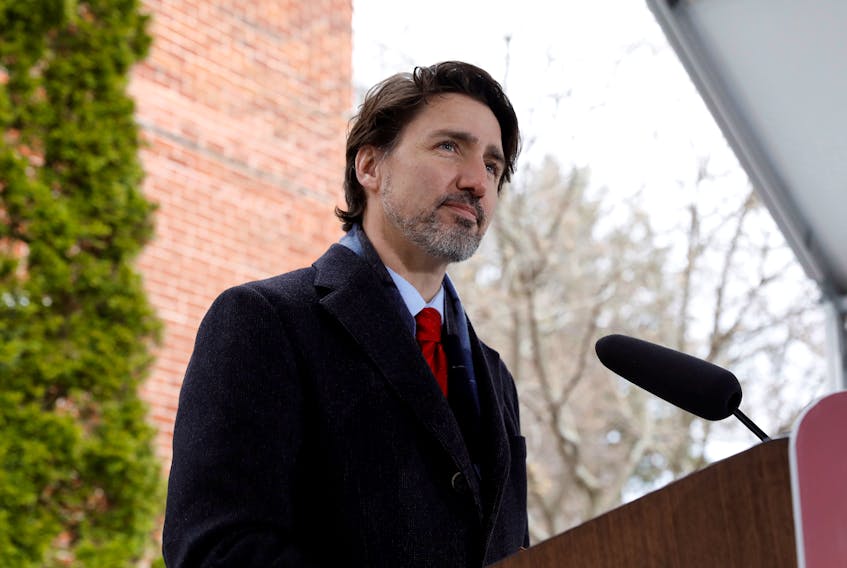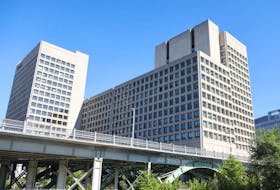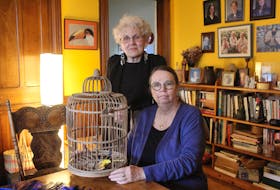The federal government has announced funding for seniors amounting to a one-time, $500 payment for the most vulnerable.
Prime Minister Justin Trudeau announced Tuesday that the federal government will provide a one-time tax-free payment of $300 for seniors eligible for Old Age Security (OAS) and an additional $200, for seniors eligible for the Guaranteed Income Supplement (GIS).
“There's no question that COVID-19 has been taking its toll on seniors, both emotionally and financially. And with today's announcement, our government is taking action to alleviate some of the stress they may be feeling,” Trudeau said.
Approximately 6.7 million seniors will receive the $300 payment, while 2.2 million will get a total of $500. This amounts to an approximately $2.5-billion expenditure for direct financial support to seniors, minister of seniors Deb Schulte said at a separate news conference.
“Seniors built the Canada we know and love, but COVID-19 has made life more expensive and more difficult for seniors because of the risks of more severe outcomes,” she said.
“Many are facing higher costs for food and services due to imposed restrictions, they are paying more in dispensing fees to get the same medication, they are paying a premium for deliveries, all while their life savings have taken a beating.”
A spokesperson from Schulte’s office confirmed Tuesday the payment will go out to eligible seniors as soon as possible, specifically within the coming weeks, and more details on exact dates will be released soon. Her office said the payments will be automatic for those receiving OAS and GIS, and eligible seniors will not need to apply separately. No legislation is required for the benefit.
The federal government also announced it would temporarily prevent the suspension of the GIS and allowance payments should a senior be unable to file their taxes on time
“These … benefits are normally renewed every year in July, typically based on new income tax filings. Instead of suspending those who have not submitted their current income, GIS and allowance payments will temporarily be extended,” Schulte said.
She said seniors should still submit their income information as soon as possible, but no later than Oct. 1 to ensure they avoid an interruption in benefits.
The government also says it will expand the New Horizons for Seniors Program with an additional expenditure of $20 million to support organizations that offer community-based projects that reduce isolation, improve the quality of life of seniors and help them maintain a social support network.
“This means help for activities such as virtual exercise classes, providing tablets and tutorials on video conferencing, deliveries of food or medication, or helping seniors get to the doctor and connect with their families,” Schulte said.
When pressed by reporters about whether a one-time payment is sufficient to help the demographic hardest hit by COVID-19 and why it has taken so long to get support to seniors, Schulte touted the previously announced programs, such as the Canada Emergency Response Benefit, which seniors are eligible to receive if they have stopped working regardless of pension benefits, the reduction of minimum withdrawal from registered retirement income funds (RRIF) by 25 per cent for 2020 and the one-time GST top-up, which have also helped seniors.
More support for seniors urged
With pandemic measures expected to continue to be in place for some time, and the financial effects to be felt even longer, the government will continue to consult with seniors and stakeholder groups, Schulte said.
“We are looking at all of those different options as we see the economy responding as we move through this pandemic,” she said, “We don’t have a crystal ball.”
In a statement on social media, the Canadian Association of Retired People (CARP) said it welcomes the announcement of additional support for seniors, but urged more action to support the retirement security crisis.
Some of the solutions CARP has proposed include waiving mandatory RRIF withdrawals in 2020, eliminating withholding tax on registered retirement savings plan withdrawals and allowing two years to repay tax owing for the 2020 tax year, and following through with commitments to permanently increase OAS and the Canada Pension Plan.
Schulte and Trudeau also faced questions Tuesday from reporters about the staffing crisis in Canada’s long-term care homes, where the coronavirus continues to cause a disproportionate number of deaths — mainly in Quebec, Ontario and Nova Scotia.
Schulte said the government is focused on supporting and working with the provinces to get things under control: guidelines to make sure that long-term care facilities have the advice they needed to keep people safe, increased funding for access to personal protective equipment and a federal-provincial wage subsidy, announced last week, to encourage workers to go back to work.
“We’ve also brought the military in where we’ve been asked. We’ve got 250 on the ground in Ontario (and) I think over 1,000 in Quebec that are working in long-term care facilities to assist,” she said.
Schulte, whose mother is in a long-term care facility in London, called the situation a tragedy.
“What we are experiencing in Canada is unprecedented and unacceptable,” she said.
Trudeau also addressed the crisis in Canada’s long-term care homes.
He said COVID-19 has exposed some “uncomfortable truths” about Canadian society, including how seniors are cared for in Canada, and acknowledged there is more work to be done.
“We've seen heartbreaking tragedies in long-term care facilities and nursing homes right across the country: overworked staff, understaffed residences, grieving families,” he said. “There are serious underlying challenges facing these facilities, and in the coming months the federal government will be there to help the provinces find lasting solutions.”









